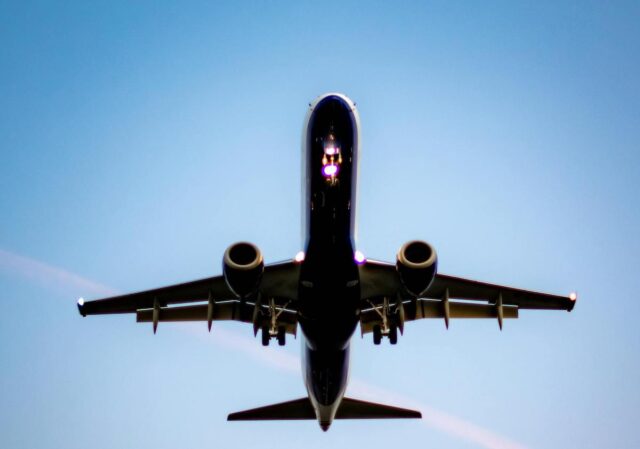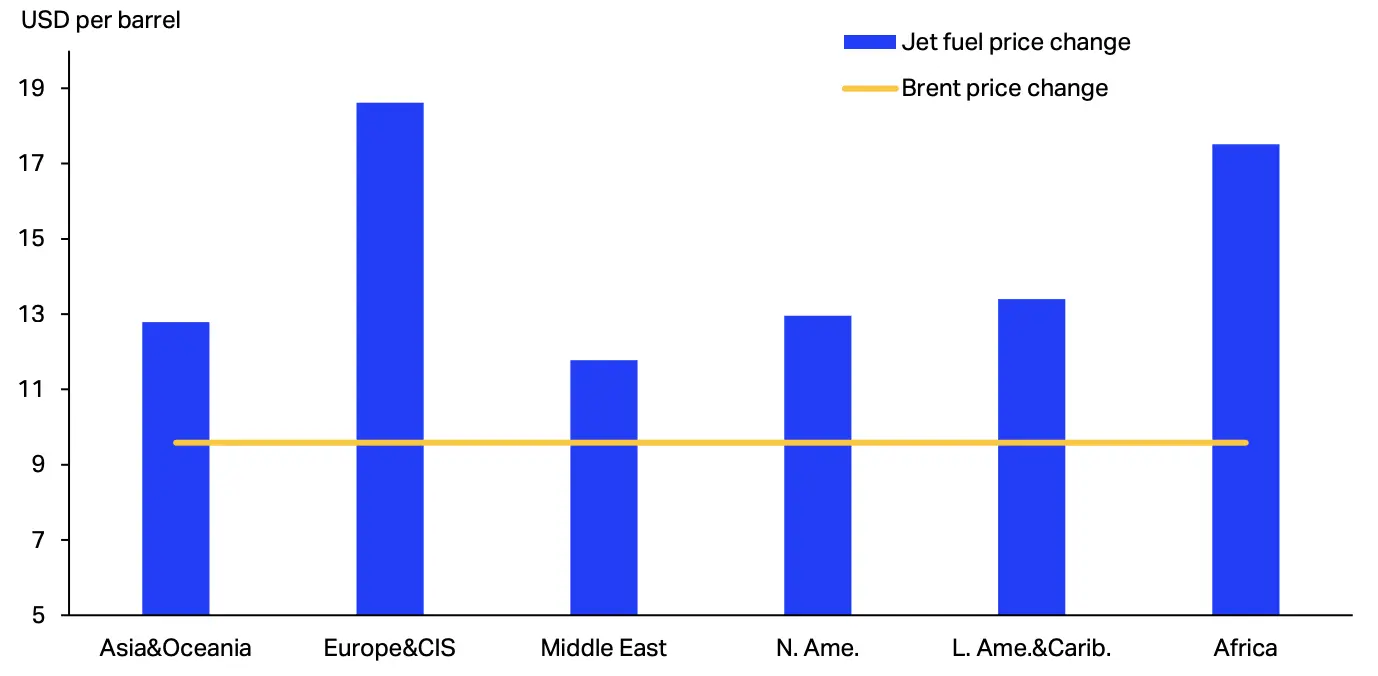IATA Flags Jet Fuel Price Volatility Following Middle East Strikes—Africa Among Most Exposed
Price surge from 12–19 June highlights regional vulnerabilities; SAF cited as key to long-term resilience.

The International Air Transport Association (IATA) has reported a sharp increase in jet fuel prices in the week following the June 12 strikes on Iran’s nuclear sites.
The price of jet fuel rose more steeply than Brent crude oil, the global benchmark, with Europe and Africa experiencing the largest price movements, as outlined in IATA’s June 27 update.
According to IATA, the volatility stems from the strategic importance of the Strait of Hormuz, through which over 30% of global seaborne petroleum liquids transit.
This chokepoint disruption disproportionately affects regions like Africa and Europe, which rely heavily on refined imports from the East to meet aviation fuel demand.
Change in the price of jet fuel versus crude oil from 12 June – 19 June, 2025

In crisis scenarios, refineries often shift production toward diesel and gasoil—critical for ground transport and power generation—at the expense of jet fuel output, notes IATA. This reallocation further amplifies jet fuel price spikes.
While prices have since moderated, IATA cautions that volatility and supply access challenges are likely to persist. The association underscores the role of Sustainable Aviation Fuel (SAF) in enhancing long-term energy security, particularly for regions most exposed to jet fuel supply disruptions.